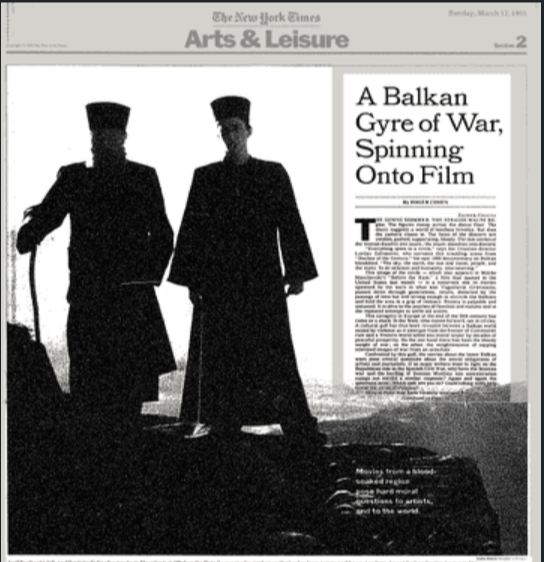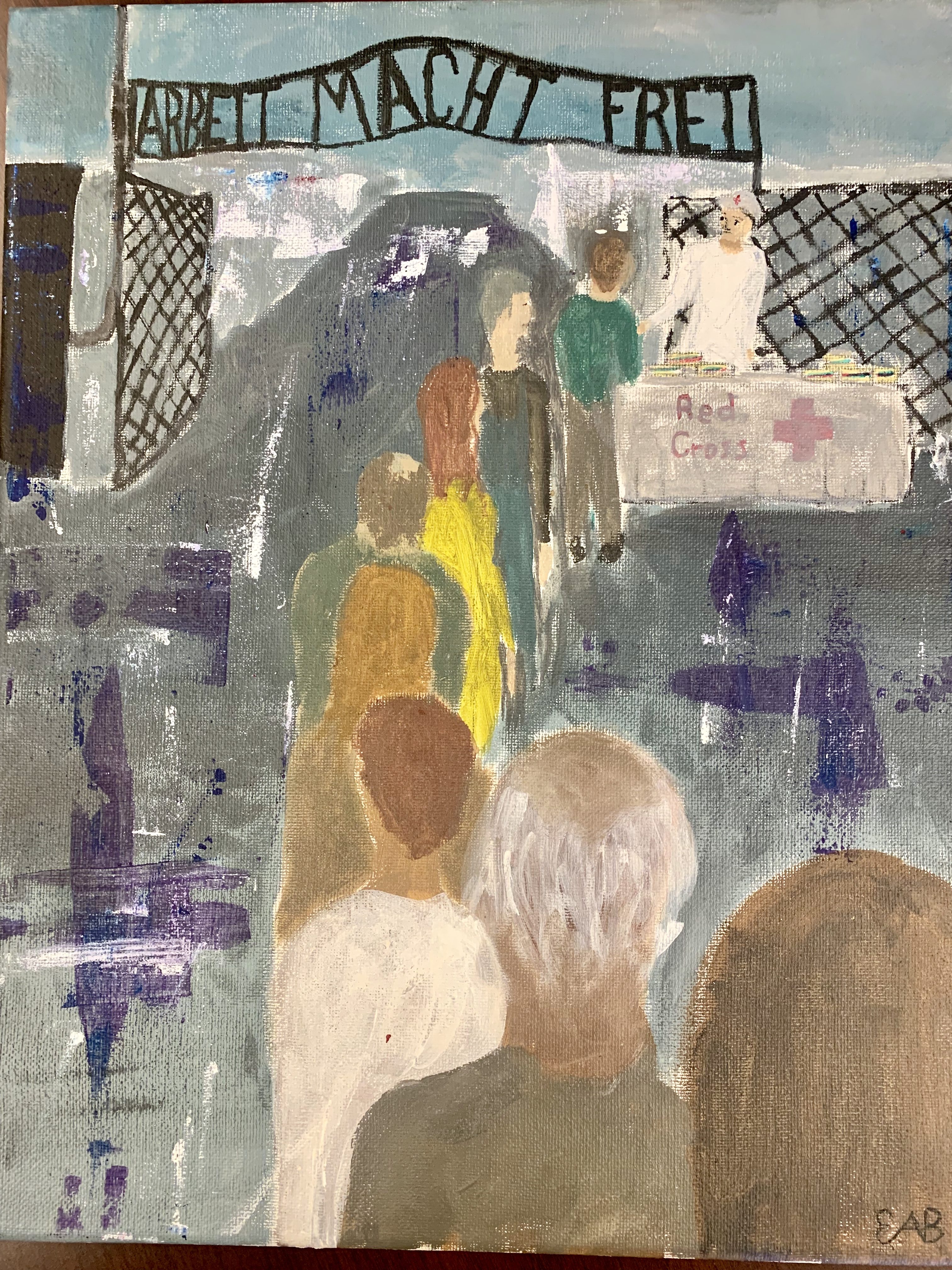“The humanitarian imperative for me, I don’t want to use a cliché, but it’s really simple in my head: you’re damned if you do and you’re damned if you don’t. That’s it.”
-30 something female humanitarian
Bringing sandwiches to the gates of Auschwitz
Brooding about the humanitarian imperative
I recently re-read Samantha Power’s book Chasing the Flame, again drinking in every word as she chronicles in deep and sensitive detail the life, and death, of UN humanitarian diplomat Sergio Vierira de Mello.
The complete title of Power’s book is “Chasing the Flame: Sergio Vieira de Mello and the Fight to Save the World.” Spoiler alert: he doesn’t.
Likely because of my recent research on humanitarian workers, and, in the last several months, into the lives of ‘refugee humanitarians‘, Rohingya women and men living in Cox’s Bazar, I was struck by a phrase Power’s used, a quote from a long-ago published NY Times film review by Roger Cohen. Cohen quotes the filmaker and French intellectual Bernard-Henri Levy,
of ‘refugee humanitarians‘, Rohingya women and men living in Cox’s Bazar, I was struck by a phrase Power’s used, a quote from a long-ago published NY Times film review by Roger Cohen. Cohen quotes the filmaker and French intellectual Bernard-Henri Levy,
“There can be no question of making a balanced movie about Bosnia,” says Mr. Levy, who has visited Sarajevo several times since the war began. “We’re living in crazy times. There’s this growing cult of balance, of equidistance, as if the death of a torturer and his victim had the same value. They do not. Bosnia is a just cause and to respond, as we have, to its destruction with the delivery of humanitarian aid is like bringing sandwiches to the gates of Auschwitz.” (emphasis added)
That phrase –bringing sandwiches to the gates of Auschwitz– has gained resonance within the humanitarian sector, and fuels the brooding many of us have as we grapple with the realities of the humanitarian imperative. A quick search led to this very thoughtful essay in World Policy by Dewaine Farria, and here is one version of my own ruminations.

As I researched this phrase, I could not find the image I had in my head, so I asked my daughter to try her hand. Her painting is simple and descriptive, and we see an anonymous line of women and men receiving a some food from a Red Cross worker as they enter the one way gates at Auschwitz. Translated from German, the words on the gates say “work sets you free.” True, that: death can be described as the ultimate freedom.
The relevance of a sandwich
There can be no question that giving food to a hungry person is a humane act, and most of us will respond in that way because we naturally act in terms of the so-called “golden rule”, doing for others what we would want them to do for us.
The vast majority of humanitarians are, yes, humane, but just like workers in any service profession they strive to do a meaningful, professional, and relevant job.
So, a question: is giving out sandwiches at the gates of Auschwitz relevant?
To be sure, relevance is much harder to define and maintain when trying to understand conflict-based humanitarian crises (e.g., Rohingya) as opposed to ‘natural’ disasters (e.g., the response to Cyclone Idai).
The line between relief and development is always in contencious, and the inexorable blurring from one to the other has come with distressing -yet predictable- regularity. There are many examples. The massive refugee camps in Dadaab, Zaatari, and now, Cox’s Bazar or Sittwe began as temporary responses, but these camps are now long term -can I use this term?- open air prisons.
What does relevance mean in each context, at what phase of the humanitarian response, and to whom? Big questions, all. By addressing the question ‘to whom is it relevant’ we must consider all parties: the many donor entities, governments, the humanitarian actors, but of course, also -and most importantly- I mean the families, children, women, and men who have been affected by the conflict and are now struggling to exist.
I am thinking here of the many Rohingya I have interviewed, all of which appreciate the WFP bags of rice.
Do they appreciate the sandwich (rice)? Yes. It sates the hunger in the short term. But is giving out the sandwich (rice) a ‘relevant response’ in a long term conflict response? Perhaps not. The only relevant response would be, ultimately, addressing the complex geopolitical issues which gave rise to their plight in the first place. The Rohingya want justice, and that is not a material commodity but rather a state of affairs that can only be reached through extensive and complex local, regional, and global political action.
A Victorian parlor maid
As Power’s reports in her book, Sergio himself lamented that at times he felt like “a Victorian parlor maid, seduced and then discarded.” Putting out immediate fires, he was doing something -at least in the short run-, and we all crave that feeling. But in the long run he realized he was but a pawn in the playing out of larger events.
Here’s an example. Talking about her participation in the Sittwe response one aid worker put it this way,
“The [Myanmar] government was playing us like a fiddle, and they did a great job of it. They let time and necessity work, so that international humanitarian actors would step in and provide the basics: shelter, food, water. So what we ended up doing was building a slum. We justified by saying, okay we’re only going to do semi-permanent structures right, we’re not using concrete, we’re not using anything permanent; always in the hope that this situation is going to get sorted out. But what that meant was that we just got poor quality things which are neither here nor there, it’s not a tent, but it’s not a house, somewhere in between. We built slums. We built slums and we contributed to creating an apartheid situation, which recently, is turned into a massive displacement and concerns of genocide.”
Closure possible?
I am thinking hard about relevance as it relates to the humanitarian sector, continually responding to crises around the world. There are no easy, glib answers to the questions I pose to myself and to my students. Issues and ideas buzz around my head like so many flies, and swatting one only creates the illusion of progress; more breed immediately.
But I remain convinced that we -I- must remain ever willing to press the question ever harder, all at the same time knowing I share the same fate as Sergio, futilely trying to ‘save the world’ in the face of forces much larger than anyone can control. I am left to ask: is what I do relevant?
As always, please contact me with feedback or questions here.


 Follow
Follow